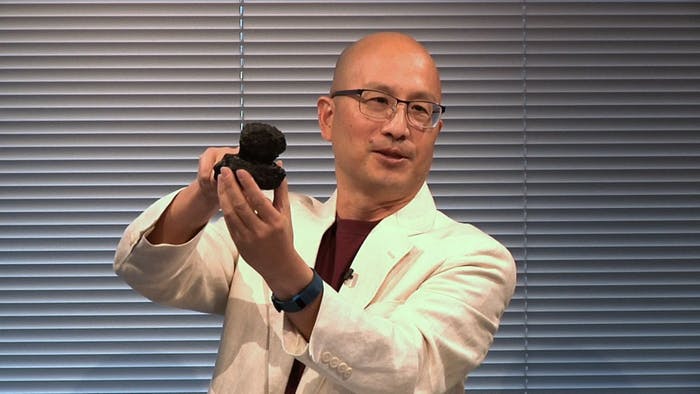A critical aspect of NASA’s mission to explore our solar system and beyond is be artificial intelligence, especially in uncrewed probes that venture into deep space beyond our solar system. So it stands to reason that if there is extraterrestrial life sitting out there in the solar system, an artificially intelligent system will find aliens before humans do.
copyright by www.inverse.com
 NASA expects this outcome, of course. It’s why it has an entire division dedicated to developing and advancing A.I. systems relevant to space exploration. Steve Chien is the technical group supervisor for the Artificial Intelligence Group at NASA’s Jet Propulsion Laboratory in Pasadena, California and is at the forefront of this project. Chien’s group is tasked with making sure whatever probe that ventures into regions around Jupiter, Saturn or beyond has the ability to assess its environment, its changing circumstances, and adapt accordingly.
NASA expects this outcome, of course. It’s why it has an entire division dedicated to developing and advancing A.I. systems relevant to space exploration. Steve Chien is the technical group supervisor for the Artificial Intelligence Group at NASA’s Jet Propulsion Laboratory in Pasadena, California and is at the forefront of this project. Chien’s group is tasked with making sure whatever probe that ventures into regions around Jupiter, Saturn or beyond has the ability to assess its environment, its changing circumstances, and adapt accordingly.
Running Errands on Mars
“It’s just like if we’re out running errands, we’re dynamically calculating things, estimating things all the time, and sometimes things take longer, sometimes things take shorter,” Chien tells Inverse . He cites work on the Mars rover programs — the next iteration which will be the Mars 2020 rover — as an example of how NASA is trying to use A.I. to give its technologies more agency to figure out on their own which things are more important to investigate further using more time and resources, versus other features. “And so we’re trying to give the rover some of the ability to do that.”
Mars 2020 Rover
The Mars 2020 rover, which will be explicitly tasked with conducting astrobiological research on the red planet, could very well be the first robot to find signs of alien life. But the Mars 2020 rover is just assisted by A.I., and wouldn’t operate strictly as an autonomous probe with its own independence. The incentive for getting a probe to operate fully autonomously is because the farther out the spacecraft gets, the larger the lag time in communications. A whole lot could happen in the span of those couple hours, and ground doesn’t have the luxury of sitting by at every given moment to provide instructions. A probe will have to think for itself. […]
read more – copyright by www.inverse.com


A critical aspect of NASA’s mission to explore our solar system and beyond is be artificial intelligence, especially in uncrewed probes that venture into deep space beyond our solar system. So it stands to reason that if there is extraterrestrial life sitting out there in the solar system, an artificially intelligent system will find aliens before humans do.
copyright by www.inverse.com
Running Errands on Mars
“It’s just like if we’re out running errands, we’re dynamically calculating things, estimating things all the time, and sometimes things take longer, sometimes things take shorter,” Chien tells Inverse . He cites work on the Mars rover programs — the next iteration which will be the Mars 2020 rover — as an example of how NASA is trying to use A.I. to give its technologies more agency to figure out on their own which things are more important to investigate further using more time and resources, versus other features. “And so we’re trying to give the rover some of the ability to do that.”
Mars 2020 Rover
The Mars 2020 rover, which will be explicitly tasked with conducting astrobiological research on the red planet, could very well be the first robot to find signs of alien life. But the Mars 2020 rover is just assisted by A.I., and wouldn’t operate strictly as an autonomous probe with its own independence. The incentive for getting a probe to operate fully autonomously is because the farther out the spacecraft gets, the larger the lag time in communications. A whole lot could happen in the span of those couple hours, and ground doesn’t have the luxury of sitting by at every given moment to provide instructions. A probe will have to think for itself. […]
read more – copyright by www.inverse.com
Share this: